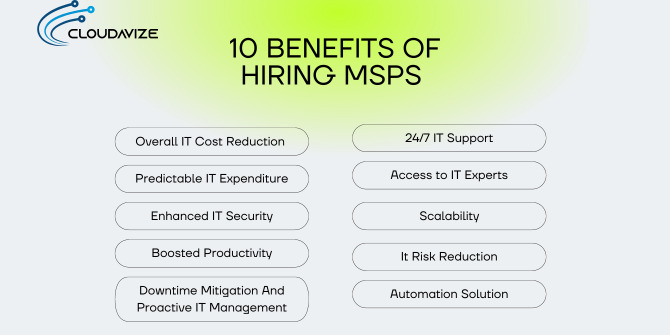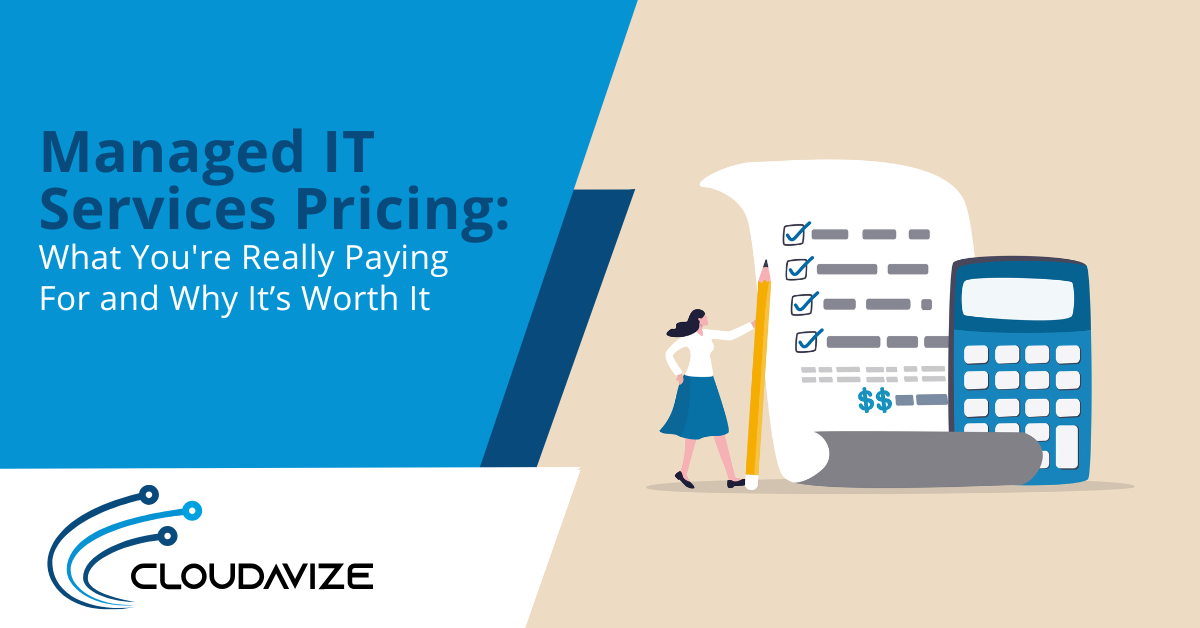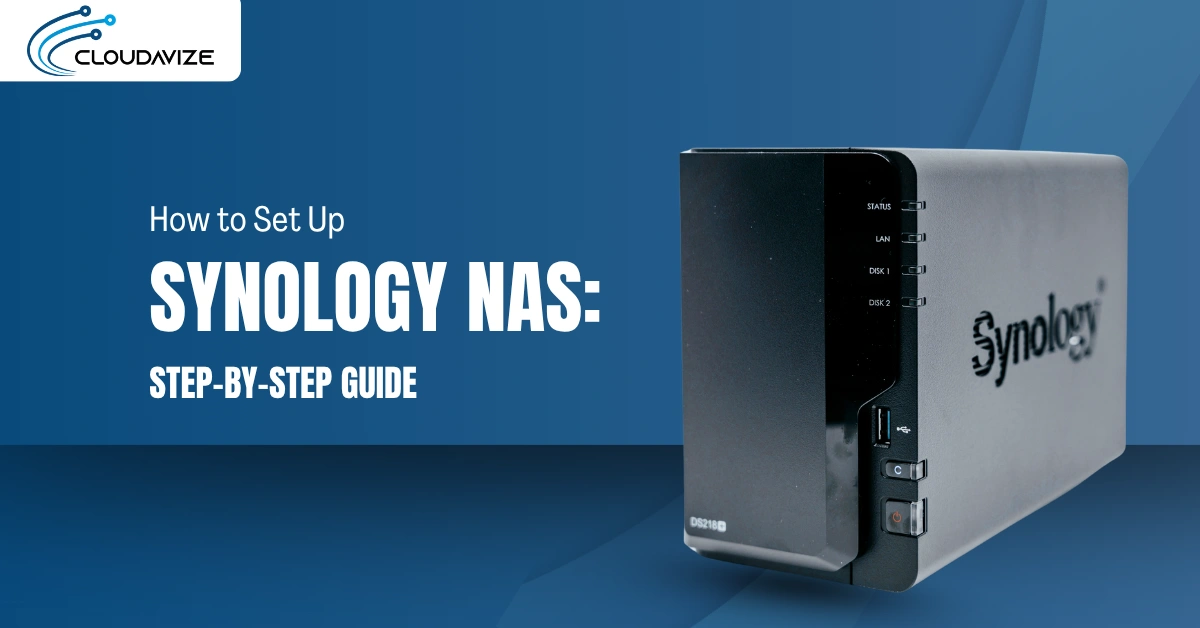In the ever-evolving landscape of technology and security, businesses of all sizes are turning towards Managed Service Providers (MSPs) to manage their IT infrastructure. This shift towards outsourcing IT responsibilities is not just a fleeting trend, but a strategic move that offers a plethora of benefits. From small startups to large corporations, the advantages of hiring an MSP are becoming increasingly apparent. This article will delve into the top 10 benefits of hiring a Managed Service Provider and why it is becoming a go-to solution for businesses worldwide.
Stay tuned as we unravel the intricacies of Managed IT Services, define what an MSP is, and explore the manifold benefits that come with hiring one. We will also shed light on how MSPs can lead to overall IT cost reduction, predictable IT expenditure, enhanced IT security, boosted productivity, and much more. So, if you’re wondering about the benefits of managed services, the managed service model, or why to use a managed service provider, you’re in the right place. Let’s get started!
Table of Contents
What is a Managed Service Provider?
A Managed Service Provider, often referred to as an MSP, is a strategic partner that businesses can rely on for their IT needs. But what exactly does this entail? Managed IT Services is the practice of outsourcing the responsibility for maintaining IT infrastructure and anticipating the need for a range of processes and functions. The goal? To improve operations and reduce expenditures through the reduction of directly-employed staff.
In simpler terms, an MSP takes on the role of an in-house IT department but with a broader range of expertise and resources. They manage, monitor, and resolve issues within your IT systems and infrastructure, allowing your business to focus on its core competencies rather than getting bogged down by complex IT issues.
Whether it’s network management, data backup, cybersecurity, or cloud services, an MSP provides these services under a subscription model. This means you have predictable IT costs and can scale your services as your business grows. Now that we’ve defined what a Managed Service Provider is, let’s delve into the top 10 benefits of hiring one.
Stay tuned for the next section where we will discuss the exact reasons why an MSP is beneficial to all-sized businesses or organizations.
Top 10 Benefits of Managed Service Providers
In the digital landscape of the 21st century, a robust and secure network forms the backbone of any business, irrespective of its size or industry. It is this network that facilitates seamless communication, data transfer, and a host of other critical operations that drive business growth. However, managing this network and the broader IT infrastructure is a complex task that requires specialized skills and resources. This is where Managed Service Providers (MSPs) come into play.
Here are the top 10 benefits of an MSP:
- Overall IT Cost Reduction
- Predictable IT Expenditure
- Enhanced IT Security
- Boosted Productivity
- Downtime Mitigation
- Proactive IT Management
- 24/7 IT Support
- Access to IT Experts
- Scalability
- IT Risk Reduction
1. Overall IT Cost Reduction
One of the most compelling benefits of an MSP is the potential for significant cost savings. When you consider the expenses associated with recruiting, training, and retaining an in-house IT team, the costs can quickly add up. This is particularly true for small to medium-sized businesses that may not have the financial resources to support a full-fledged IT department.
An MSP, on the other hand, provides access to a team of seasoned IT professionals who can manage your IT infrastructure at a fraction of the cost. This team can handle everything from routine maintenance to complex network issues, eliminating the need for costly in-house resources. Moreover, the MSP model allows for predictable budgeting, with most providers operating on a fixed monthly fee.
2. Predictable IT Expenditure
Financial predictability is another significant advantage of an MSP. Most MSPs operate on a subscription-based model, where businesses pay a fixed monthly or annual fee for a range of services. This model provides businesses with the ability to forecast their IT expenditure accurately, making budget management a breeze.
Unlike the traditional break/fix model, where IT costs can be unpredictable, the MSP model allows businesses to enjoy unlimited IT support without worrying about unexpected expenses. This pricing structure also encourages MSPs to maintain the health of their IT infrastructure, as they bear the cost of any IT issues that arise.
3. Enhanced IT Security
In today’s cyber threat landscape, maintaining robust IT security is more important than ever. With cybercriminals becoming increasingly sophisticated, businesses need to stay one step ahead to protect their sensitive data and IT infrastructure.
This is where an MSP can provide immense value. MSPs are equipped with the latest cybersecurity tools and technologies to protect your business from a wide range of threats. They can proactively monitor your network for any signs of a breach and take immediate action to mitigate the risk.
4. Boosted Productivity
In the fast-paced business world, productivity is key. Any downtime or inefficiency can lead to significant losses. This is where the concept of “break-fix” comes into play. In a traditional IT setup, when a problem arises, the IT team works to fix it. This reactive approach can lead to significant downtime and loss of productivity.
On the other hand, an MSP operates on a proactive model. They continuously monitor your IT infrastructure, identifying and resolving issues before they can impact your business operations. This proactive approach ensures that your IT systems are always up and running, leading to enhanced operational efficiency and productivity.
5. Downtime Mitigation
Downtime can be a significant drain on a business’s resources, leading to lost productivity, revenue, and even customer trust. An MSP can help mitigate downtime through proactive IT management and business continuity planning. They can ensure that your IT systems are robust and resilient, capable of withstanding or quickly recovering from any disruptions. This not only minimizes downtime but also ensures that your business can continue to operate smoothly under any circumstances.
6. Proactive IT Management
Preventive maintenance is a crucial aspect of IT management. Regular maintenance helps identify potential issues before they become major problems, ensuring the smooth operation of your IT infrastructure. An MSP provides proactive IT management, regularly checking your systems and performing necessary updates and patches. This not only helps prevent issues but also optimizes your systems for peak performance.
7. 24/7 IT Support
In today’s digital world, businesses operate round the clock. Therefore, IT support needs to be available 24/7 to address any issues that may arise. An MSP provides round-the-clock IT support, ensuring that help is always available when you need it. This level of customer service can provide peace of mind and allow you to focus on your core business operations.
8. Access to IT Experts
By partnering with an MSP, you gain access to a team of IT experts with a wide range of knowledge and expertise. These experts stay up-to-date with the latest IT trends and technologies, ensuring that your business can leverage the most effective and efficient IT solutions. This access to expertise can be particularly beneficial for small to medium-sized businesses that may not have the resources to hire a full-time IT team.
9. Scalability
As your business grows, so do your IT needs. An MSP can provide scalable solutions that grow with your business. Whether you need to add new users, increase data storage, or expand your network, an MSP can quickly and efficiently scale your IT infrastructure to meet your growing needs.
10. IT Risk Reduction
Every business faces IT risks, from data breaches to system failures. An MSP can help reduce these risks through comprehensive risk management strategies. These strategies may include robust cybersecurity measures, data backup and recovery solutions, and business continuity planning. By reducing IT risks, an MSP can help protect your business from potential losses and disruptions.

Partner with Industry Leading Managed IT Service Provider
In the realm of Managed IT Services, it’s crucial to choose a partner that not only understands your needs but also has the expertise and capabilities to deliver on them. A partner that can provide you with the peace of mind that your IT infrastructure is in capable hands, allowing you to focus on your core business. A partner that can offer you all the benefits outlined above and more.
That’s where Cloudavize comes in. With our comprehensive range of IT services, Cloudavize is committed to providing you with the best Managed IT Services in the DFW area. Our team of experts is always on hand to provide 24/7 support, ensuring that your business continues to operate smoothly and efficiently. Cloudavize offers scalable solutions that grow with your business, proactive IT management to prevent issues before they occur, and robust security measures to protect your valuable data.
So why wait? Experience the benefits of a top-tier IT Service Provider today. Give Cloudavize a call at (469) 250-1667 and let us help you take your business to new heights.



